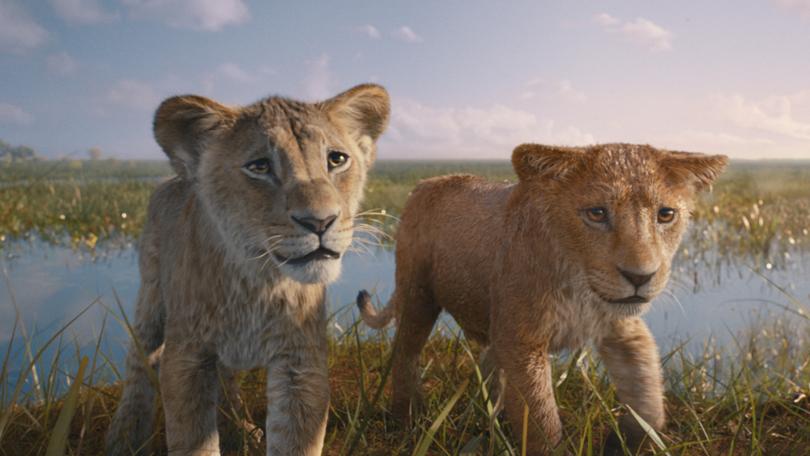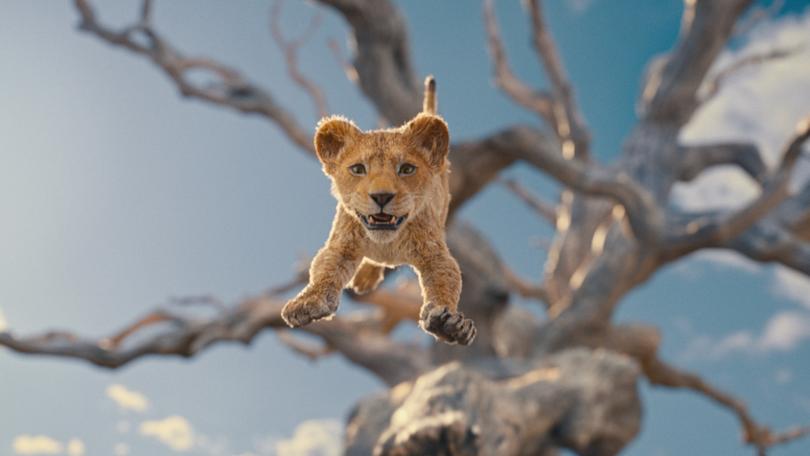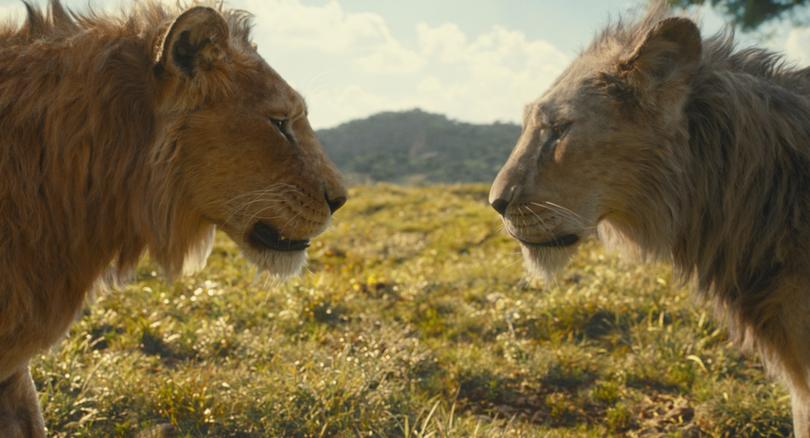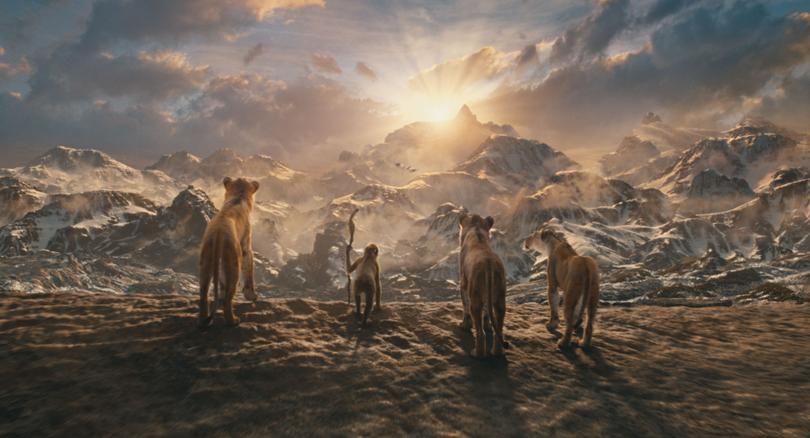How Oscar winner Barry Jenkins took on the challenge of Mufasa: The Lion King
Barry Jenkins, the prodigious filmmaker behind Moonlight, also didn’t expect to be making a Disney blockbuster.

Right after filmmaker Barry Jenkins won the best picture Oscar for Moonlight, he took himself off to the Yucatan in Mexico.
“I wanted to get the hell out of dodge,” he told The Nightly. On his retreat, he came across cenotes, a kind of freshwater sinkhole, and the experience of being there, in “such an intense time in my life” has always stayed with him.
The cathedral-like spaces of these natural formations are an important part of Mufasa: The Lion King, providing the towering backdrop to two key scenes. Jenkins directed the film from a screenplay by Jeff Nathanson, and the cenotes is one of the things he added to the story.
Sign up to The Nightly's newsletters.
Get the first look at the digital newspaper, curated daily stories and breaking headlines delivered to your inbox.
By continuing you agree to our Terms and Privacy Policy.Another is expanding on its use of water. “I could describe two films and I could say, ‘In this film, very early, there is a scene that takes place in water, it’s almost biblical, and this main character is with their parent figure, and the aftermath of that sequence sends them on to the rest of their life.
“I could be talking about Chiron from Moonlight or Mufasa in this film.”
Mufasa: The Lion King was not what he was expecting to do either, but when the script came to him, he asked himself the question, “What could I bring to the Lion King?”.
Jenkins doesn’t, at first, seem like an obvious choice to take on Mufasa: The Lion King, Disney’s follow-up to its 2019 remake of the animated classic. But when you see the film, it clicks together.

He has infused this franchise family blockbuster with the artful sensibilities he’s exhibited in his acclaimed dramas. There’s the water and baptism themes from Moonlight and the sweeping emotions of If Beale Street Could Talk.
The film moves in the CGI environment in a more dynamic way. Jenkins uses a lot more close-ups so that audiences can venture into the intimate space of the lion characters, to get a better sense of their emotional state.
He deployed a technique he had previously deployed on other projects, including the under-watched and superb series The Underground Railroad, adapted from Colson Whitehead’s seminal novel.
“We tried to build a camera format just like with The Underground Railroad and Beale Street, where the camera can be responsive to the physical blocking of the actors.
“The physical blocking was really key to the film. The animators actually got into suits and they were the ones going through doing it as a first rough draft of the animation while the voices of the principal cast is being blasted onto the stage.”

Mufasa: The Lion King is both a sequel and a prequel. The framing narrative is the next generation with Simba and Nala’s daughter Kiara being told a story by Rafiki.
It is the tale of Mufasa, a common lion who is separated from his loving family as a young cub and found by Taka, a prince. Taka convinces his mother to adopt Mufasa into their pride, despite the objections of his father, King Obasi.
Mufasa and Taka become brothers, frolicking through the savannah, and the story tracks how these besties grow into the characters we met 30 years ago – Mufasa and Scar.
There’s often a challenge in how to sustain dramatic tension when you’re making a prequel because audiences know the endpoint, but for Jenkins, that’s not what this film is servicing.
“It’s how these characters evolved, how the world changed,” he explained. “That stuff is so rich as long as that’s your focal point, that’s your guiding light.”
Jenkins said the movie is about nature versus nurture. There is an exchange between Taka and Obasi that becomes ingrained in his relationship to the world. Obasi, a mediocre king, at best, says to a young Taka, “Deceit is the tool of a great king”, and while the young prince objects, it stays with him.
“The audience can see how this bad parenting begins to shape who is character ultimately becomes, one of the most despicable beings in the history of Disney,” Jenkins said.

Nature versus nurture, or even nature and nurture because it’s not a binary, feels like an urgent conversation now, but it’s a timeless foundation for any story at any point in human history.
“This is a story that could take place out of time. This idea of monarchy, leadership, royalty, government, however you want to describe it, and then the paths of how we get to these positions, this idea of who gets to wield power, who gets to ascend and who is forced to subsist,” he said.
“Unpacking those things is always necessary, doing so now, it’s incredibly necessary, and we have these two totems of Mufasa and Scar who represent the endpoint of ‘this is good royalty and this is bad royalty’.”
The connection for the younger kids in the audience is they will get to see these ethical and philosophical questions explored through the third plank in the film, that of Kiara, who is learning that destiny is not etched in stone.
“The whole point of Rakifi telling this story is, ‘(Mufasa) is just a guy who went through all these different things, he’s great because of how he responded to what happened to him’.”
He added, “For so long, we’ve thought of these characters as being frozen in their characteristics, and I love that by telling this story, we get to show how they were shaped and moulded, and evolved through their experiences and their responses to their experiences.
“How they came to be.”
Mufasa: The Lion King is in cinemas on December 19

